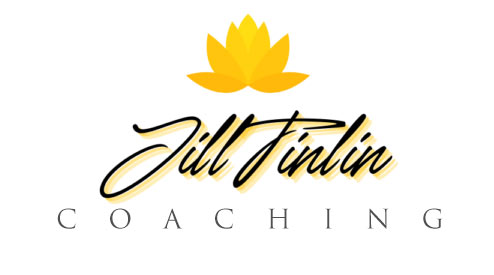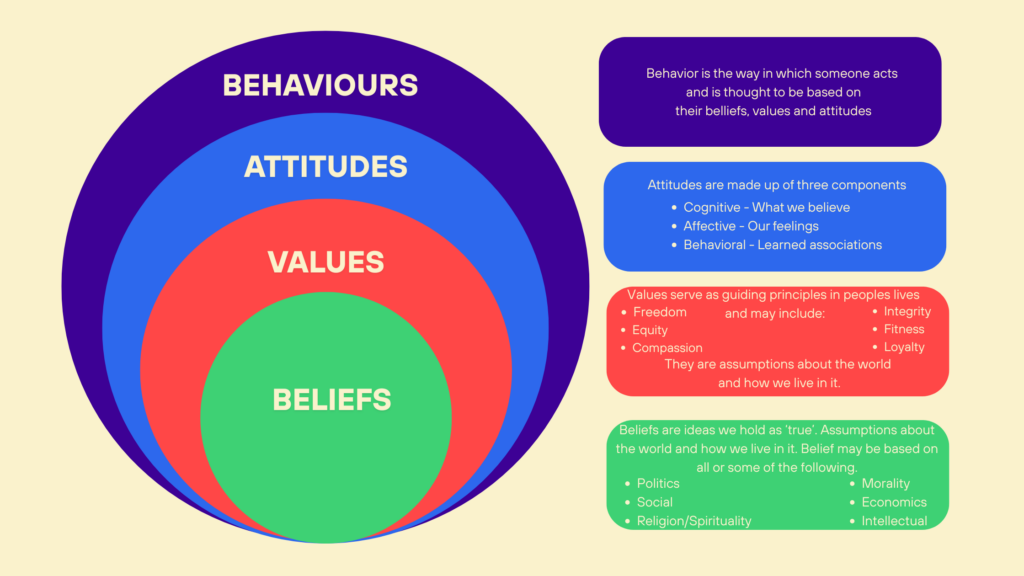An Introduction to Values
“Your beliefs become your thoughts. Your thoughts become your words. Your words become your actions. Your actions become your habits. Your habits become your values. Your values become your destiny.” ~Mahatma Gandhi~
What Are Values?
Values are the fundamental beliefs that govern our lives. They inspire how we act and speak, guide our decisions about everything from career to personal growth, and embody the person we become. They influence how we treat others and interact with the world. Values are the core of who we are.
There are two types of values: personal values and cultural values. Personal values are our beliefs about right and wrong. They belong to us personally and shape how we look at the world. Cultural values are norms accepted by the societies in which we grow up. These values vary by place and context, but their effects on our lives can be as powerful as personal values.
How our values are defined depends on our feelings and sentiments about ourselves and the world around us. Personal values can be positive and lead to self-esteem and fulfillment. They can also be damaging and based on limiting beliefs. These values can cause problems in relationships and our overall interactions with the broader world.
Examples of Cultural Values
-
-
-
-
-
Collaboration
-
Integrity
-
Agility
-
Diversity
-
Customer Orientation
-
Execution
-
Innovation
-
Performance
-
Respect
-
-
-
-
Examples of Personal Values
-
-
-
-
-
Integrity
-
Empathy
-
Resilience
-
Authenticity
-
Gratitude
-
Open-mindedness
-
Responsibility
-
Compassion
-
Fairness
-
Lifelong learning
-
-
-
-
Formation and Reinforcement of Values:
Values come from deliberate actions. Think of a small child saying, “I can do it!” The child does not just want the result; they want to prove that they can achieve it through their own effort.
Efficacy is a profound rational value understood through self-awareness. Understanding efficacy helps a child realize it will meet any future needs. After the child grasps the benefit of his efficacy, he will have emotions about those feelings.
We feel pride when we succeed through our efforts and see the result. Once we have enough experience to predict success, we build confidence. These two pleasurable emotions reward your growing capacity to develop values in the world. Having efficacy determines whether you are a pawn of external forces or the captain of your fate.
Values are established and reinforced through daily actions. When you have a desired objective, you maintain it as a goal, take action to attain it in the present, and frequently succeed in achieving it. The value is set. Three mechanisms form and reinforce the value.
-
A Value-Oriented Reason: If you choose your purpose because it is a means of achieving some valuable end, you establish the named purpose as valuable and reinforce the value of the longer-range end.
-
Self-Generated Action: Acting to achieve the purpose reinforces its value by linking it with self-generated action.
-
Observed Success: The pleasure you get from your efficacy increases the pleasure you get from gaining the value, reinforcing it as a value.
By the time you reach adulthood, you have formed thousands of values through purposeful action. They are all interrelated in one way or another.
How Values Become Distorted or Weakened:
Values form when we are successful. What happens when the family we are born into does not set us up for success? What happens when we fail? Won’t those difficult circumstances and those painful feelings undermine the value-forming process? Instead of feeling pride and confidence, there will be feelings of frustration and/or guilt that can undermine the value-forming process and sap motivation. The child may associate unpleasant feelings with the process and develop an aversion (i.e., conflict) for the same object. This ambivalence toward your values is the source of a vast array of motivational problems.
Failure is a reality we will face in life. We will make mistakes. We will experience setbacks. We must learn to manage these inevitable life lessons with resilience and develop coping strategies to resolve such conflicts.
Another option open to us is not to act. Action is a choice. You can make the decision not to gain a value. In practice, you are choosing one value over another, or can you choose to strengthen one value over another? You decide to date one person over another. You choose to go to this college over that college—absent other factors when you choose one value over another. Strengthening the chosen value weakens the rejected value.
Two other key cases must be considered. First, not all purposeful action is aimed at achieving a value. Sometimes, an action is chosen to avoid a threat, not to gain a value. When you decide to avoid a threat instead of gaining value, the threat becomes your focus. When avoiding threats becomes your focus, the threat takes on a larger significance in your mind and can become an object of permanent fear comparable to a value. We might think of this as an anti-value. Anti-values create massive conflict in significant areas of your life and can paralyze you.
Second, not all actions are purposeful. You initiate purposeful actions, which are deliberate. If you do not make the effort, you are reacting unthinkingly to the events around you without identifying values or keeping any defined purpose in mind.
The world is constantly changing around you. You must monitor your routines so that they stay goal-directed. Make small adjustments to ensure that your habits stay pointed toward your values. Without vigilance, you can easily slip into default mode and onto the easier path—the path of less resistance, where you can avoid anything new or scary. This path is the path our emotions will choose if given the lead because it feels good.
Relying on feelings can create a gap between your conscious values and those programmed in your subconscious.
Threat-based emotions tend to be more intense than value-based ones because they alert individuals to emergencies. That means that over time, threat-based motivation comes to dominate your life.
Your Value Hierarchy:
Values are the fundamental cause of all emotions. The emotional system highlights value-related issues. Emotions can be thought of as alerts to opportunities to gain a value and/or threats to a value that may warrant attention.
You have thousands of values. What factors contribute to the activation of a specific emotion? To understand this, you must understand that values exist in a structure. They are related to one another. This structure is a value hierarchy. Your value hierarchy is stable at a given time. Your value hierarchy evolves over time because of your experiences and every choice you have made. You have formed values and connections between the values, which may be loose or systematic, accidental, or intentional.
When you understand this, you can see that every emotion you have is based on a history of past experiences and choices. Your emotional makeup reflects an organizational pattern. This knowledge is powerful. You have a choice in the programming of future motivation.
In Conclusion:
We begin to form values as infants—our very first values form by meeting basic biological needs. The baby is hungry; the mother holds the bottle to his mouth, triggering a sucking reflex. The bottle becomes associated in the baby’s mind with meeting a need and the experience of pleasure. Eventually, a hungry baby will recognize and desire a bottle when someone is holding it.
The bottle has become a psychological value. The baby desires the bottle because it has satisfied his hunger in the past. If he is hungry, getting the bottle will bring him a feeling of satisfaction even before he starts to drink. Losing the bottle will bring dissatisfaction.
These basic forms of satisfaction and dissatisfaction have names. We call them emotions. Joy is the feeling you have when you gain a value. Grief is what you feel when you lose one. Desire is what you feel when you see a value; your action can help you achieve it.
The process of forming our value system happens without us giving it any thought. We become who we are through our experiences and by being part of the culture we live in. Our values become part of what makes us who we are through the family we are raised in, the neighborhood we live in, the schools we attend, the faith we practice, the color of our skin, our gender, who we love, and who we emulate.
If you are like me, you never thought about your values. The idea of what you believe or why you believe it never reached the top of your list of important things to explore.
Most people don’t think about their values until life hands them a circumstance that makes them slow down or STOP and become introspective. Our values are the fundamental component of our psychological makeup and our identity.
I had a seismic event after a graduation party for my cousin’s daughter. I had felt warning tremors before then but was not ready to think about what they might mean. Throughout my childhood and into adulthood, my maternal aunts, uncles, and cousins had been an integral part of my identity. We were a close bunch who spent every Sunday and holiday together at my grandparents’ house. Over time, things changed; my grandparents passed away, my mom passed, and our families increased in number as we all married and had children. There were those in the family who stayed close, and I longed to be part of that group. When I attended family functions, I found myself increasingly on the outside looking in. I left those occasions feeling hurt and confused.
During the graduation party, not only did I feel distant from the people who had been so important to me all my life, I felt like a stranger. Earlier, I mentioned that I had felt the warning signs. I can see I have changed. The experience was disorienting and upsetting for me. I did not understand that my value hierarchy had evolved. It felt like something had happened to me. I mistakenly believed my extended family had rejected me. Having gained an understanding of how values form and can change based on experiences and our choices, I have realized that my values have changed and evolved, as have the values of my family members. Knowing how values form and how they change has made me feel powerful. I do not feel like a victim, nor do I have to hold the people whom I had loved in contempt. I can be objective. Life is a process of change and growth.





